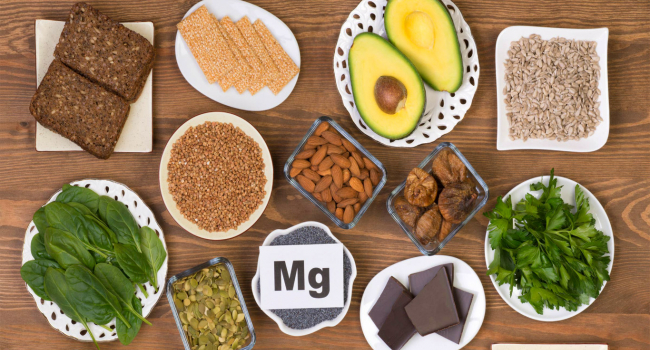- Latest news▼
-
15:32, April 26 ESCMID: New method of purifying the air with ultraviolet light could protect world from new pandemic

-
08:43, April 26 Enzymes that convert different blood groups into first group are discovered

-
19:41, April 25 Children’s Hospital Los Angeles and International Center of Professional Development Allergy/Immunology Conference

-
17:31, April 25 JAMA: patient grew long, curly eyelashes because of chemotherapy

-
11:08, April 25 Mpox epidemic declared in Republic of the Congo

-
08:31, April 25 OU: quitting smoking 4 times more likely to cure laryngeal cancer

-
01:20, April 25 Paralyzed man in China writes hieroglyphs using neural implants placed in his brain

-
15:11, April 24 Zombie deer disease possibly linked to hunters’ deaths

-
12:27, April 23 Appetite: Scientists found out the secret to the appeal of large portions of fast food

-
10:33, April 23 Scientists test new approach to fighting viruses

-
08:38, April 23 Ketamine may help with postpartum depression

-
22:12, April 22 Unhealthy amount of sugar found in baby food products of a well-known brand

-
19:41, April 22 Air pollution puts health of more than 1.6 billion workers globally at risk

-
17:25, April 22 Scientists found baked goods and lack of sleep to be more dangerous than alcohol

-
16:02, April 22 342 cases of measles recorded in Armenia so far in 2024

All materials
Getting enough magnesium could boost your vitamin D levels

New US research has found that getting enough magnesium could optimise vitamin D levels, boosting levels in those who are deficient and lowering it in people whose levels are too high.
Carried out by researchers at Vanderbilt-Ingram Cancer Centre, the new study looked at 180 participants aged 40 to 85 years of age taking part in the Personalised Prevention of Colorectal Cancer Trial (PPCCT).
To test the hypothesis that magnesium supplementation affects the body’s metabolism of vitamin D, participants were asked to take either a supplement of magnesium or a placebo, which were customised based on the participants’ dietary intakes at the start of the study.
The findings, published in The American Journal of Clinical Nutrition, showed that magnesium supplementation increased levels of vitamin D when the level was close to 30 nanograms per millilitre (nmol/L), but decreased it when the level was higher (from 30 to 50 ng/mL).
An optimal level of magnesium may play an important role in optimising vitamin D levels and preventing health problems related to vitamin D levels.
The study’s lead author Qi Dai, MD, PhD, described the ideal level of vitamin D as being in the middle range of a U-shape, as vitamin D at this level has been linked to the lowest risk of cardiovascular disease in previous observational studies.
The findings also support the researchers’ results from a prior observational study in 2013 which showed that low magnesium levels are linked with low vitamin D levels.
“Vitamin D insufficiency is something that has been recognised as a potential health problem on a fairly large scale in the US,” said researcher Martha Shrubsole, PhD, “A lot of people have received recommendations from their health care providers to take vitamin D supplements to increase their levels based upon their blood tests. In addition to vitamin D, however, magnesium deficiency is an under-recognised issue.”
According to the National Health and Nutrition Examination Survey (NHANES), a series of studies designed to assess the health and nutritional status of adults and children in the United States, 79 per cent of US adults do not meet their Recommended Dietary Allowance of magnesium.
Shrubsole added that the magnesium levels in the study were in line with RDA guidelines, and she recommends making dietary changes as the best method for increasing intake. Foods with high levels of magnesium include dark leafy greens, beans, whole grains, dark chocolate, fatty fish such as salmon, nuts and avocados.
Follow NEWS.am Medicine on Facebook and Twitter
- Video
- Event calendar
- Children’s Hospital Los Angeles and International Center of Professional Development Allergy/Immunology Conference
- First Armenian-German Conference entitled “Heart Failure Spring School”
- Allogeneic bone marrow transplant in case of hematological malignancy performed in Armenia for first time
All materials
- Archive
- Most read
month
week
day
- Scientists found baked goods and lack of sleep to be more dangerous than alcohol 1036
- Next pandemic likely to be triggered by flu - scientists 1010
- 342 cases of measles recorded in Armenia so far in 2024 960
- Scientists develop new method to safely stimulate immune cells to fight cancer 819
- Cognitively stimulating jobs in midlife could lower dementia risk in old age, study finds 819
- Blood test can determine who is at risk of developing multiple sclerosis - scientists 815
- Unhealthy amount of sugar found in baby food products of a well-known brand 805
- Air pollution puts health of more than 1.6 billion workers globally at risk 800
- Ketamine may help with postpartum depression 797
- Appetite: Scientists found out the secret to the appeal of large portions of fast food 791
- Scientists test new approach to fighting viruses 773
- BrainStimulation: electrical brain stimulation alleviates anxiety and depression in the elderly 748
- Zombie deer disease possibly linked to hunters’ deaths 715
- Mpox epidemic declared in Republic of the Congo 518
- Paralyzed man in China writes hieroglyphs using neural implants placed in his brain 491
- Find us on Facebook
- Poll





